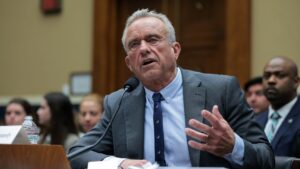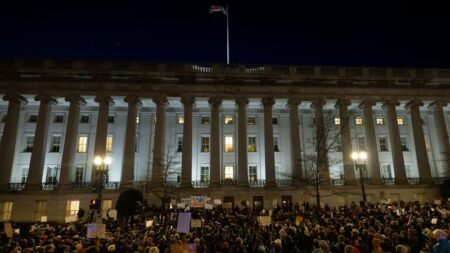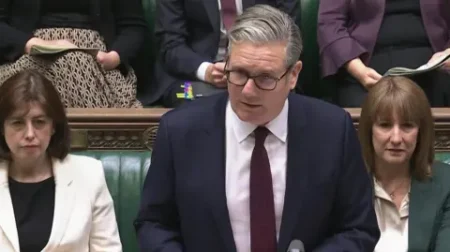On Wednesday, US Secretary of State Marco Rubio announced the imposition of sanctions against Francesca Albanese, a senior United Nations official dedicated to monitoring human rights in the Palestinian territories. The sanctions are aimed at addressing what Rubio termed Albanese’s “illegitimate and shameful efforts” to influence the International Criminal Court (ICC) to take action against United States and Israeli officials, corporations, and executives. This move reflects a significant step in the ongoing tensions surrounding the conflicts in Israel and Gaza, amid accusations of war crimes committed during the current crisis.
Rubio’s announcement came as part of a broader pattern of American policy to retaliate against those investigating alleged war crimes against Israel. This follows an executive order signed earlier this year by former President Donald Trump, which was designed to impose punitive measures on the ICC for what the order characterized as “illegitimate and baseless actions targeting America and our close ally Israel.” The Trump administration had previously placed sanctions on several ICC officials, including chief prosecutor Karim Khan, supporting its stance against the court’s jurisdiction over American and Israeli nationals.
The position of Special Rapporteur on the human rights situation in the Palestinian territories is designated for an “independent expert” by the UN Human Rights Council rather than appointed by the UN Secretary-General. This role is aimed at keeping international attention on the ongoing human rights issues in the Occupied Palestinian Territory. The timing of the sanctions against Albanese coincided with Israeli Prime Minister Benjamin Netanyahu’s visit to Washington, DC, where he praised the decision. The Israeli Foreign Minister Gideon Sa’ar called the sanctions “a clear message,” emphasizing the United States’ support for Israel.
The Israeli Ambassador to the UN, Danny Danon, also expressed approval of the sanctions, reinforcing that the United Nations should pay attention to actions that, according to him, undermine the integrity of international law. Rubio noted that Albanese has been proactively engaging with the ICC, seeking to investigate and prosecute nationals from the US and Israel, which neither countries consented to, further complicating the legitimacy of such actions.
Rubio’s statement accused Albanese of biased behavior, suggesting that her approach towards Israel and the US has disqualified her from her role. He characterized her advocacy for the ICC to issue arrest warrants on Israeli officials, including Netanyahu and former Defense Minister Yoav Gallant, as indicative of an underlying antisemitism. This aligns with the broader narrative that the US has fostered against international judicial mechanisms that appear to scrutinize Israel’s actions in the conflict.
In November 2024, the ICC did issue arrest warrants against Netanyahu and Gallant for alleged war crimes, which has been a point of contention, complicating international relations further. The United States has recently pushed to block Albanese’s renewal as the UN Special Rapporteur, demanding that the UN Secretary-General overtly condemn her actions and advocate for her removal from the position.
Significantly, the details of Rubio’s announcement painted a picture of Albanese exerting influence over major American companies, urging investigations and suggesting their alleged complicity in human rights abuses in the region. Rubio voiced a strong stance against these “campaigns of political and economic warfare,” emphasizing that the US would not tolerate actions he perceives as threats to national interests and sovereignty.
In a recent report, Albanese pointedly accused various American corporations of profiting from Israeli policies that she described as rooted in occupation, apartheid, and genocide. This controversial stance sheds light on the ongoing debates surrounding international human rights advocates and the responses from states that perceive their actions as threats to national interests.
In summary, this escalation between the US and the UN highlights the complexities of international relations, particularly relating to the Palestinian-Israeli conflict and the broader implications for human rights advocacy. Rubios’ sanctions reflect a new player in foreign policy that prioritizes national sovereignty and retaliation over cooperative international dialogue aimed at resolving contentious human rights issues.











